Making mistakes

I was angry. I'd prepared for this piece of artwork! Started out by sketching multiple ideas and composition layouts, then deciding on the paper, paints and individual colours to use. Creating test swatches to check how everything would work together. But it wasn't enough. I still made a major mistake in the painting process, something that could have been avoided.
My mistake
The pencil work was done and the next stage was painting, either the fairy wren, or the background that was going to be dark muted green, giving an out-of-focus bokeh effect. Choosing a large flat brush I began putting water down to wet the paper so the paint added to the background would spread and give a soft look.
Except the paint didn't do that. The pigments in it separated, it wouldn't spread nicely, some of it sank into the fibres straight away and other particles left streaks every time I brushed over it. This was completely unexpected behaviour from my swatch test and patronising thoughts were telling me off: I should have tested the paint over a large area first. I shouldn't have prewet the paper. Terrible pigment. Paper not right. It was an ugly result.
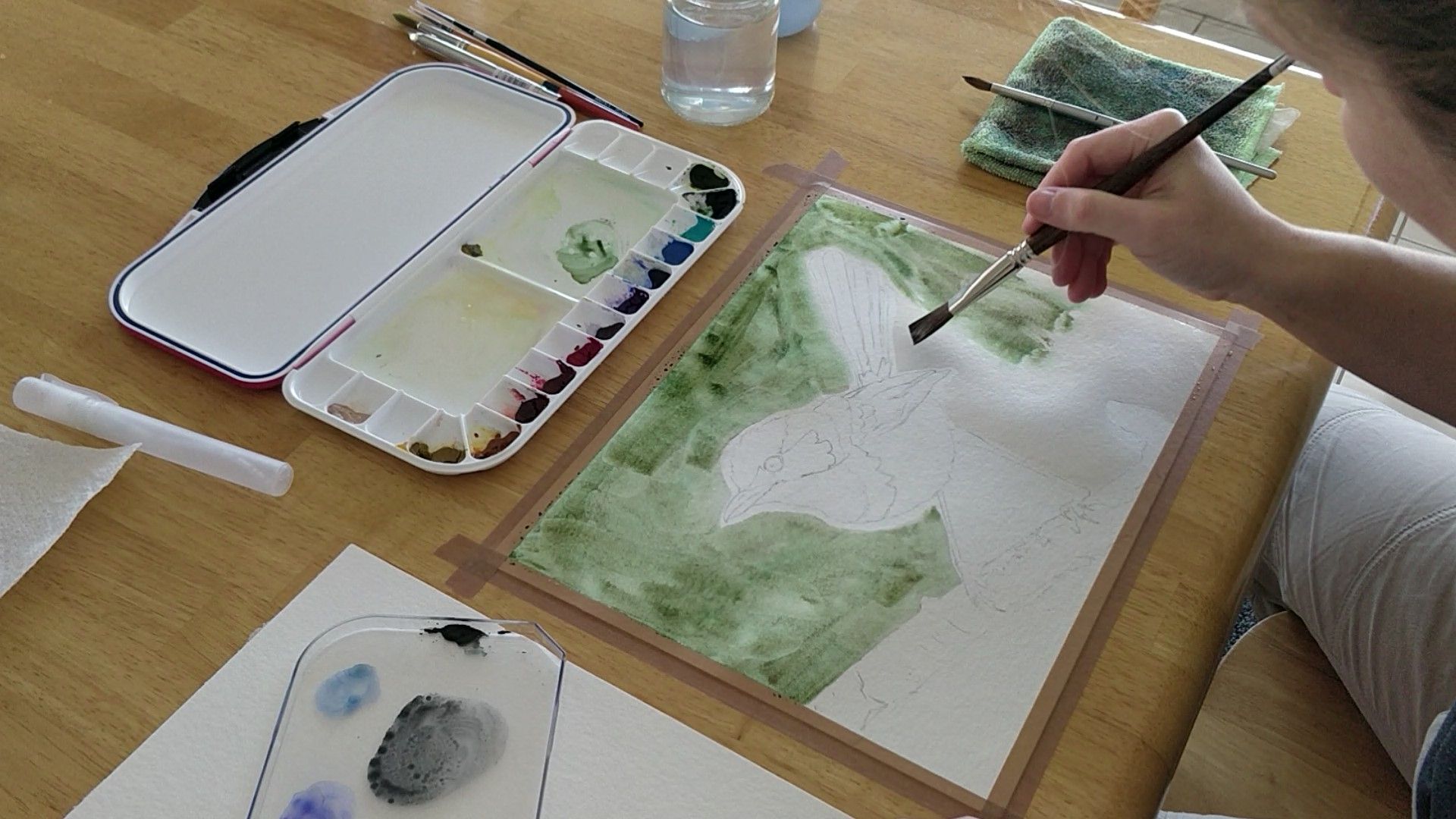
What is a mistake?
I would describe a mistake or an error as a deviation from the expected outcome. There is an element of surprise and we treat surprises (or anything uncertain) with suspicion, hence the negative association. Our guards are up, our first instinct is to protect and so it can take quite a process to calm down and accept what has occurred.
Mistakes come large and small, from the tiniest splatter mark or non-matching colour value, through to irreparable damage to a piece. As the size, importance and permanence of the mistake increases, so do our fears and negative attitude towards them. Mistakes can change the destiny of a project, dooming it to failure with one slip. Everything can flip - our mood, the direction of the piece, the rest of our day.
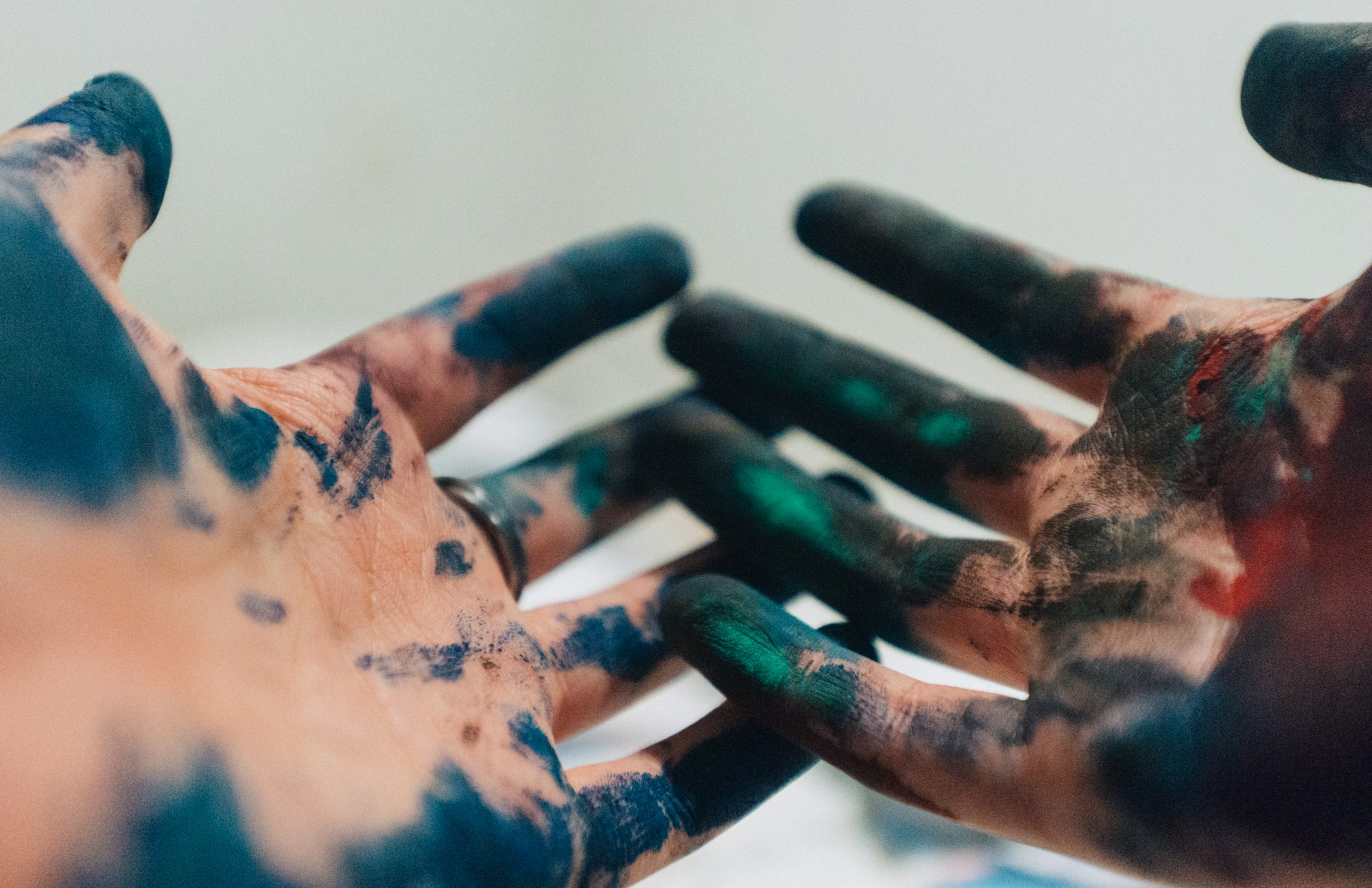
Let's consider what happens with the more serious mistakes, as most of us are accepting of 'small' ones due to their lack of consequence. How do we prevent and get past our mistakes?
Making mistakes and learning
"Everyone makes mistakes, its part of being human." Although sentiments such as these are meant to reassure us in a caring manner, are they helpful? A mistake has still been made. I would say yes, we need this kind of thinking to start the process of accepting the mistake and recognising their necessity.
You could argue that making zero mistakes is achieving perfection (and therefore unattainable). But mistakes aren't all bad. For one thing, mistakes provide the best learning opportunities. So this leads me to ask: is someone who is perfect not able to learn anymore? Or at least in an unexpected manner? Learning something allows you to experience awe and wonder. Where's the fun in losing that?

Mistakes are a necessary part of the process of learning. They shouldn't stop us from trying again, because what we will have gained from the process will lead to an improvement in our skills. They are a discovery point from which we can explore new possibilities. Keeping this in mind will help us accept them when they occur, which is the first step to a better outcome. Aiming high but having realistic expectations rather than forever striving for perfection will lead us to be more satisfied with the final product. The next step is looking at the piece with fresh eyes and thinking "What can this become now?"
"We don't make mistakes, just happy little accidents." - Bob Ross
By this statement the beloved Bob Ross is teaching us to let go of the fear of having deviated from a plan and accept the reality and new opportunities presented by this change. It requires a different mindset - a more open way of looking at the same outcome. From here a decision will determine whether the piece is a failure or success. Not the mistake - a decision, an attitude. We can work with it, or against it. This could be a disaster, or it could be an exciting new adventure into the unknown.
This is where courage is required. To brainstorm new ideas, try new things to fix, hide or just recover. To not let panic take over. To dare to dream that this might even make it better.

Preventing mistakes
So its imperative to make mistakes while you're learning since its part of the process (in education this would fall under formative evaluation), however there will be situations when we want a polished piece with no mistakes. This is because we don't consider it a learning moment but rather an example of our prowess (summative).
There are cases where its not possible to make a mistake (by my definition): when there is no expected outcome, all paths lead to a final result that can't be judged as right or wrong. Since there are no deviations its just the journey taken. In these circumstances when we explore and create with abandon, this is when most people say they feel 'free' and easily slip into a flow state.
At the other end of the scale was my current 'high-stakes' situation where I was creating a gift for someone and really didn't want to have to start from the beginning again if something went wrong. There was pressure to have a certain desired outcome, which in turn makes mistakes more likely to happen. So how can we reduce the pressure, create freely and decrease the chances of making a mistake in the first place?
Here are my 3 tips for preventing mistakes:
- Prepare
- Move slowly
- Lower the perceived pressure
Preparation helps by removing potential stumbling blocks. By practicing and becoming familiar with materials and techniques we are not learning them at the same time as creating the piece of art, allowing us to focus all our attention on the creation, not execution. Building to the final piece in a series of steps can help bridge the gap between idea to reality, and artists typically use a workflow incorporating concept sketches, thumbnails, colour tests, swatches and practice pieces so that the process feels familiar the whole time.
Moving slowly allows us to proceed with caution and react more quickly before a situation gets worse. The workflow mentioned before is a way of slowing down the process by creating small steps from a large task. Taking a few breaths, pausing for a break and setting aside ample time from the beginning removes the time pressure of a situation. It can also help the body to relax, a way of reducing the perceived pressure. If our bodies are relaxed, then our minds generally follow.

Although the pressure might be there, if we can consider it to be less high-stakes (i.e. change our mindset) then we will behave more freely. Artists like to enter a more relaxed state of mind by having a soothing environment to work in (music, cup of tea, by a window etc). Even just thinking 'this is practice, if I stuff up I can always make another', although it's actually be a high-stakes situation, might 'trick' your mind into feeling less pressure.
High-performance athletes behave in a similar manner before competing. For instance take a diver who has to perform a dive with many complicated twists and turns with perfect timing. To reach this level there is lots of training so that every movement is almost unconscious. Moments before their dive they will envision the perceived outcome, slowing it down in their mind and remove all distractions while they are focusing. Some will listen to music or do breathing exercises to help their mind and body relax.
If a mistake happens, how we react and proceed determines whether or not this was just part of the process or ends as a failure. Ultimately what matters most is 'getting back on the horse' and trying again, not giving up. This is where I find nature journaling helps to practice being in the mindset where mistakes can be made and not getting caught up in them. Drawing while nature journaling is a safe space for me to explore new ideas and techniques while not worrying about producing a pretty picture (even if I want to). Therefore its OK when my page doesn't turn out as amazing as it looks in my mind's eye.
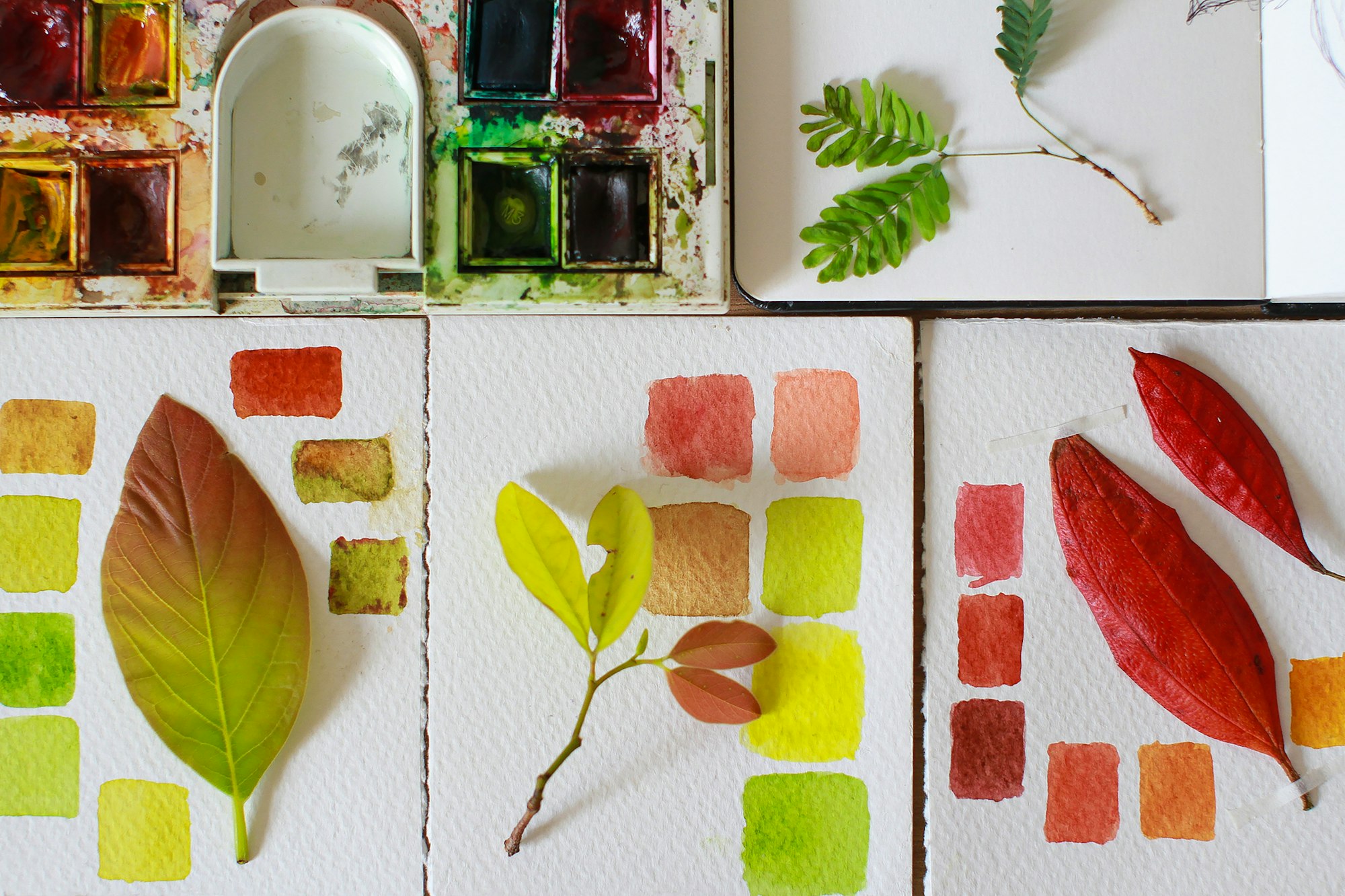
Does it matter?
Did you know what my mistake was before I described it? When other artists (or yourself) have shared a piece how many times was a mistake not picked up until it was explicitly pointed out? As creators we are intimately aware of every detail of our artwork since we were involved throughout the process, whereas others will most likely only look at it for a few moments and consider it as a whole. So keep in mind that others might not even see the mistakes you do, or not consider them as mistakes but simply personal choice.
Sometimes we might consider a mistake to be a mountain when its actually just a molehill. Reassess the situation - can it be fixed or redone? Is it actually noticeable?
I moved on from the background in my piece and focused on the fairy wren subject, thinking it could at least provide me practice if I did need to start again. This gave me time and space (i.e. slowed down to be less reactive) and allowed me to consider my options. Since I was satisfied with how the fairy wren turned out I decided to tackle the background again to see if it could be fixed.
I dared to try some ideas I might not have normally: lifting a large section didn't work with this pigment and layering a different colour on top was an improvement but still didn't match my desired final image. I tried another layer and left it again overnight. Ultimately I was able to salvage the background to the best of my ability to a level that 'was OK'. I've learned that I need to get to know my pigments and paper better and what partly works for removing the streaky effect.
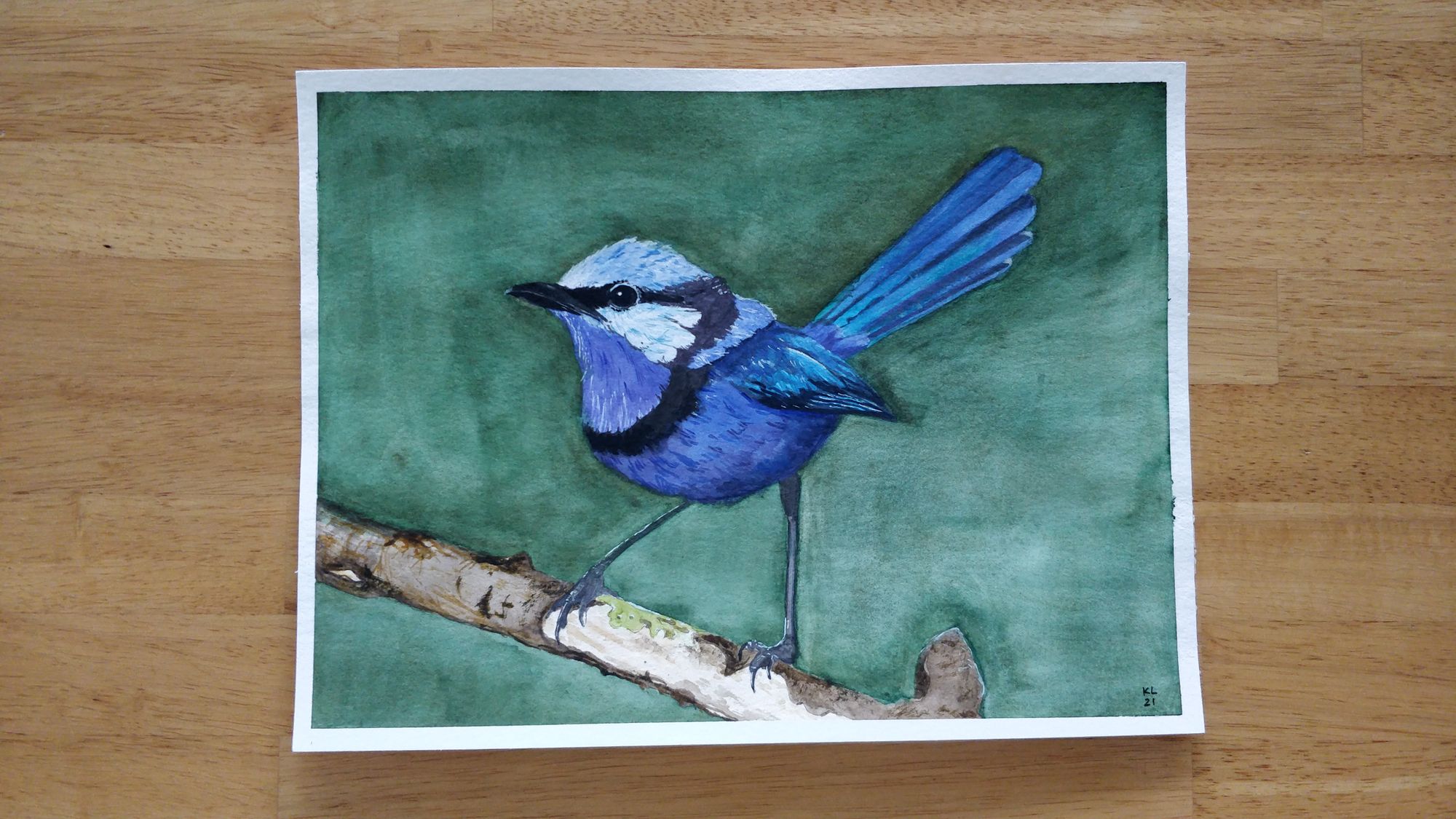
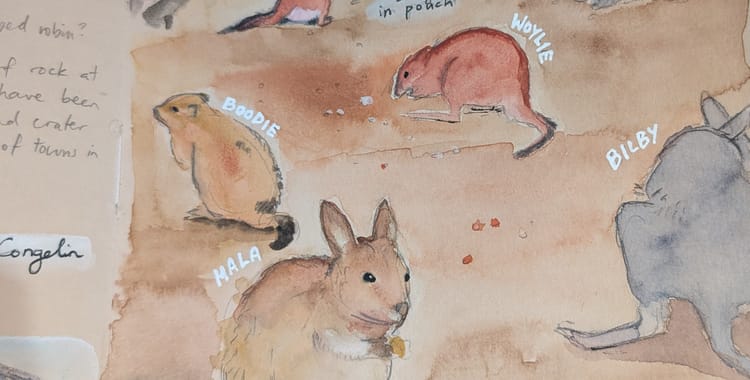
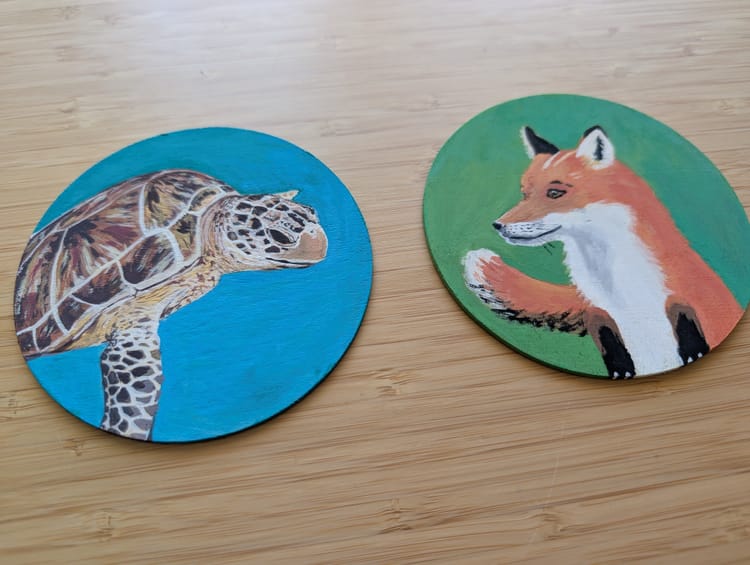
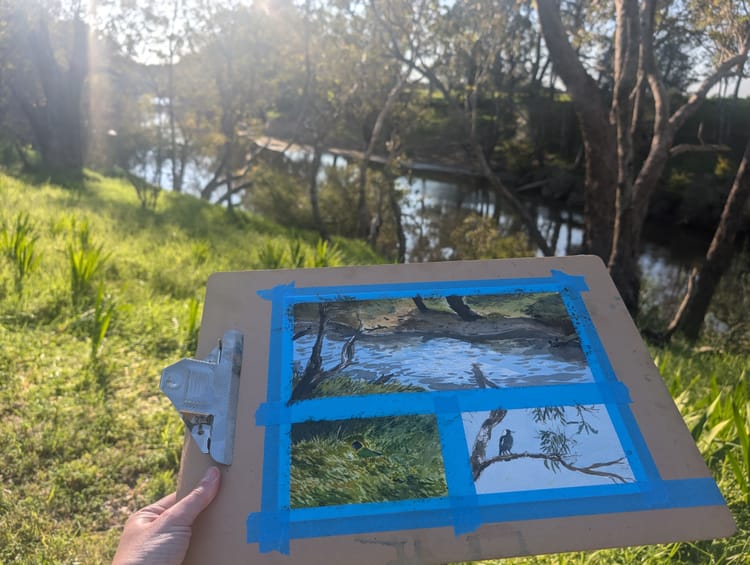
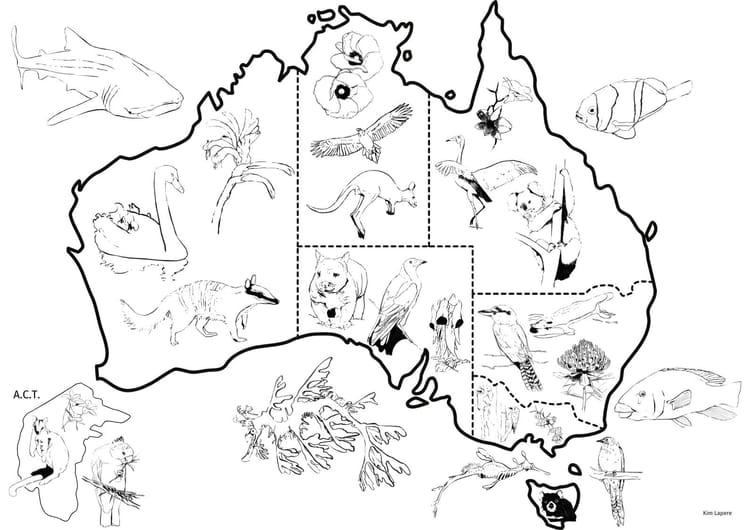

Member discussion